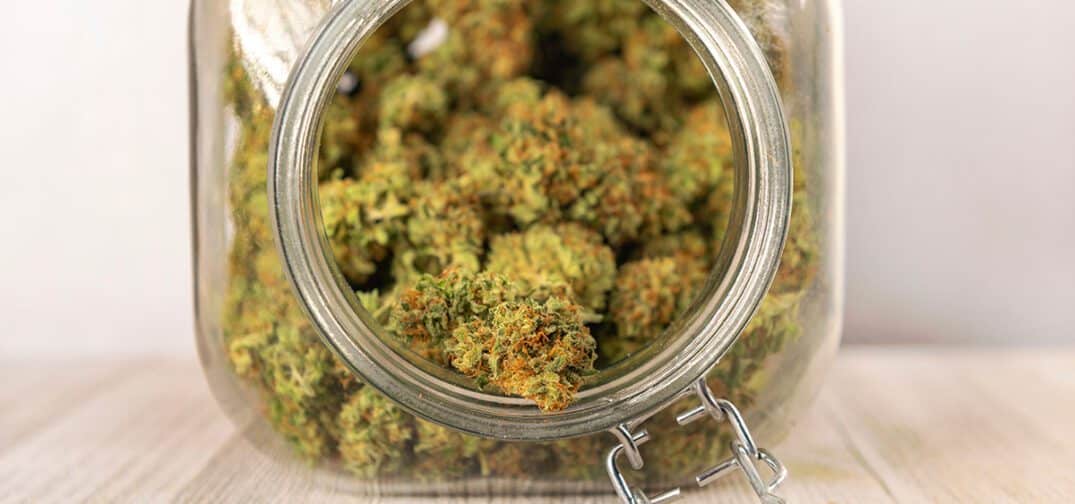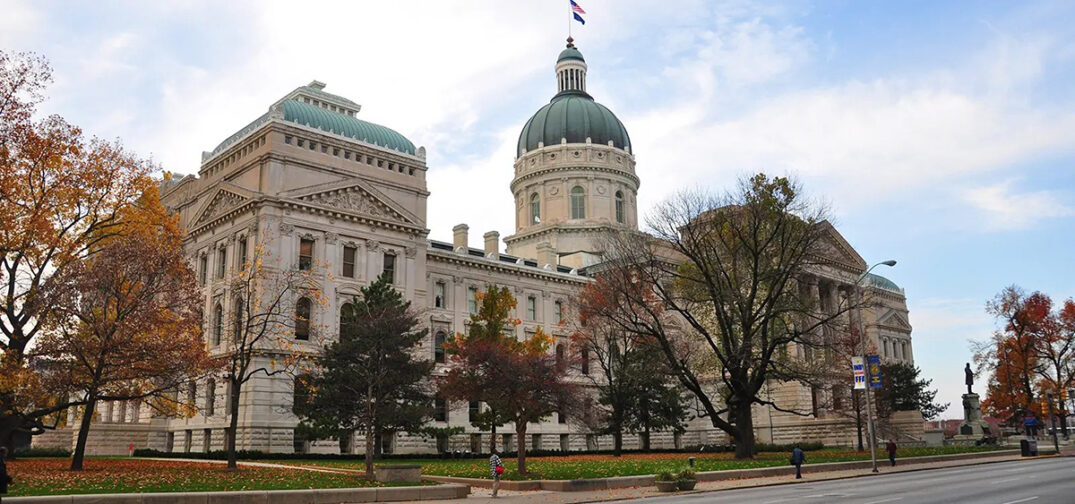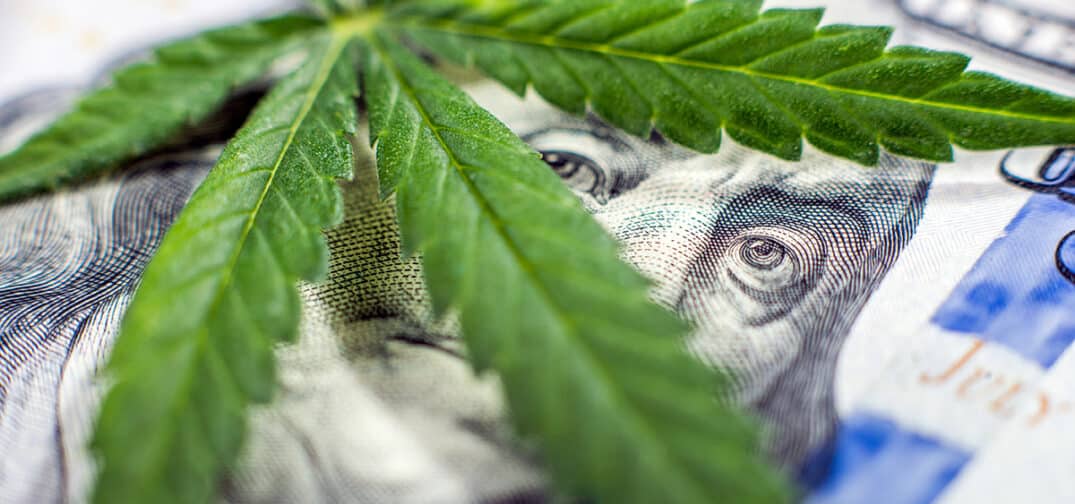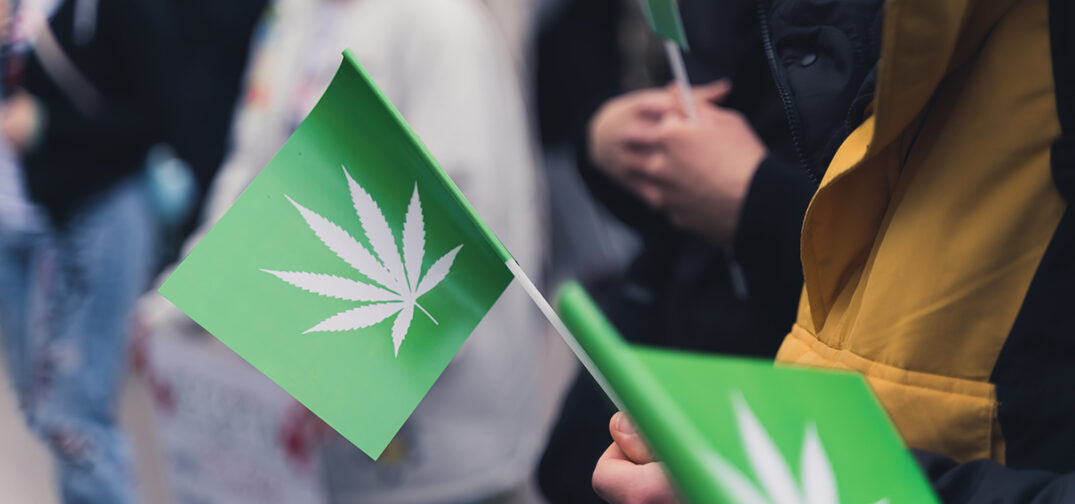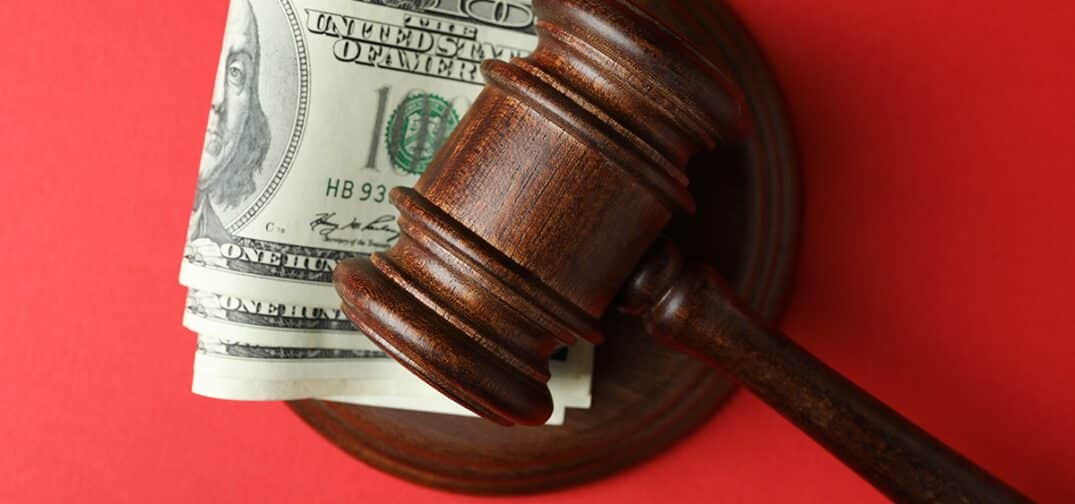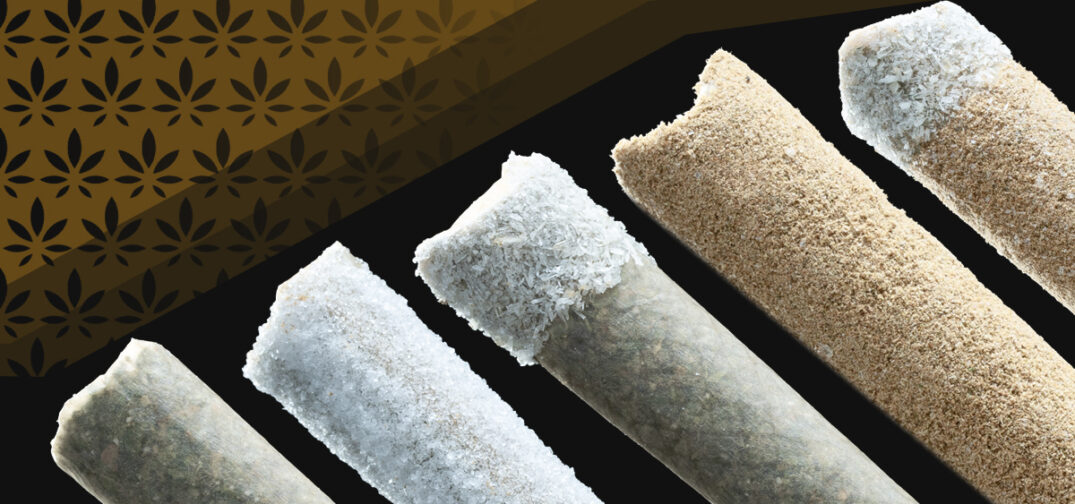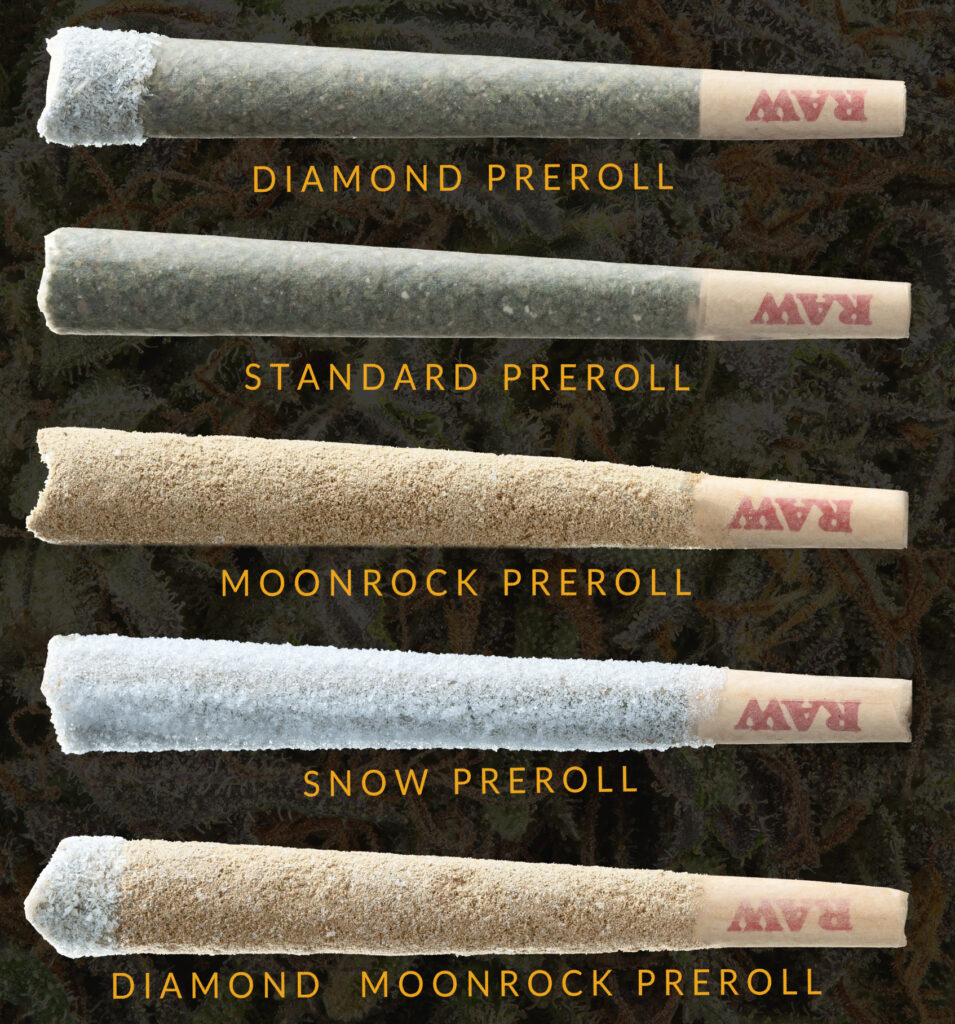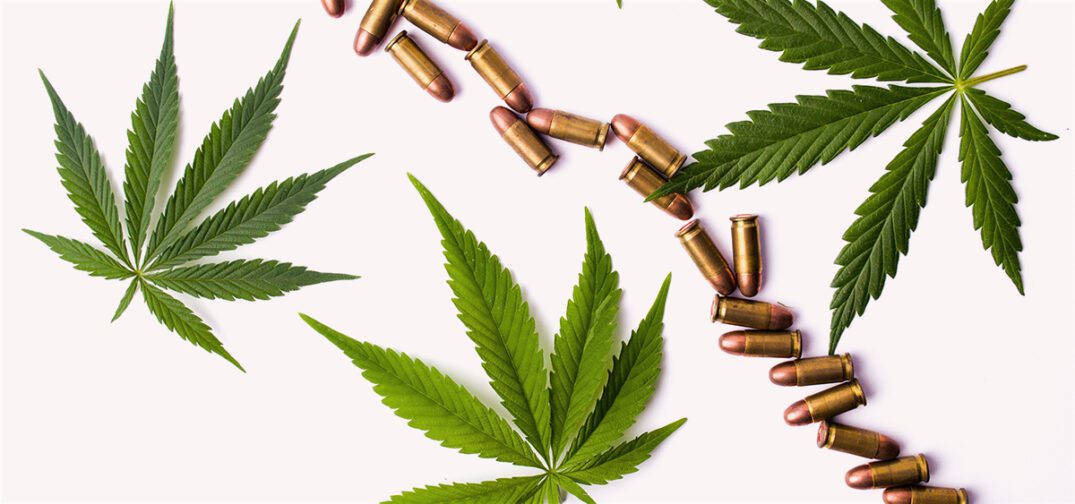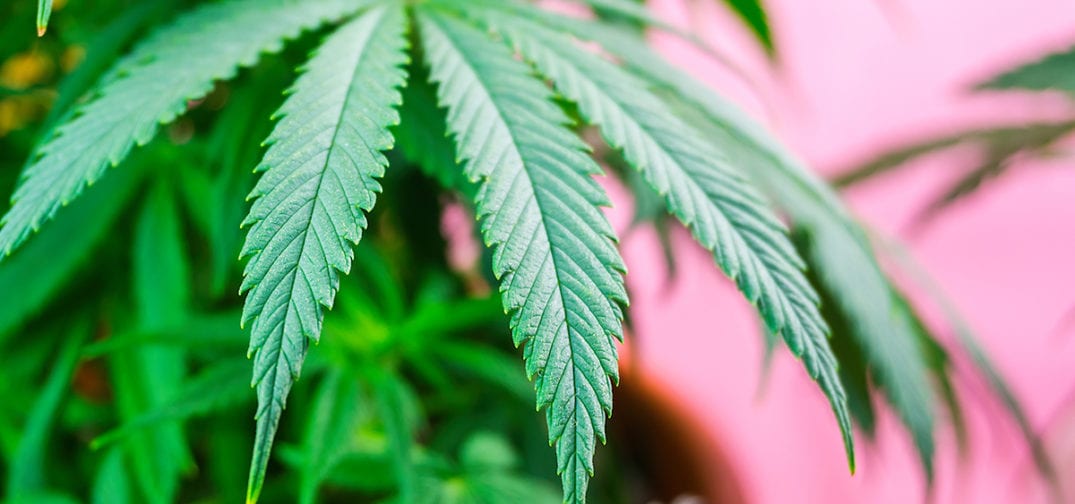In this episode of the Ganjapreneur Podcast, host TG Branfalt is joined by Josh Wurzer, co-founder of SC Labs, one of the longest-running cannabis testing laboratories in the industry. In this episode, they explore the evolution of cannabis testing, from measuring cannabinoids and terpenes to detecting contaminants like pesticides and mold. Josh shares insights into regulatory challenges, lab fraud, the importance of terpene profiles, and how the industry can better educate consumers to prioritize quality over THC percentages. It’s an enlightening look at the critical role labs play in ensuring cannabis safety and integrity. Listen to the full episode below, or scroll down for the full transcript!
Listen to the episode:
Read the transcript:
Editor’s note: this transcript was automatically generated and may contain errors.
TG Branfalt (00:52):
Hey there, I’m your host, TG Branfalt and this is the Ganjapreneur.com podcast where we try to bring you actionable information and normalized cannabis through the stories of ganjapreneurs, activists and industry stakeholders. Today I am joined by Josh Wurzer, the co-founder of Multi-State operator SC Labs. How are you doing this afternoon, Josh?
Josh Wurzer (01:13):
Excellent. How are you doing?
TG Branfalt (01:15):
Cool, man. Cool. I’m excited to get to what we have to talk to. There’s a lot of stuff in the testing space that I’m hoping you can shine some light on, but before we get to that, tell me about yourself and how you ended up in the cannabis space.
Josh Wurzer (01:30):
Alright, well, so I’ve been in the cannabis space, I guess one way or another since I was in high school. But I always had a love for the plant. I always kind of in one way or another have either added as a part-time job or made a little bit of a living out of cannabis. Went to school though to be a chemist, left school, moved out to California from Wisconsin originally and had a little bit of a grow always on the side that back then it was in the medical marijuana industry. This would be like 2005. But I was working normal jobs, worked in the pharmaceutical industry doing small molecule synthesis for drug discovery. Then worked for Samsung for a long time doing electronic materials, research and development, sort of developing the materials that computer chips and different electronic materials are made out of. And then was one day thinking about maybe what else is out there, just kind of browsing through job postings.
(02:30):
Back then it was Craigslist that people looked for new jobs on in the Bay Area was Bay Area, California, and was reading through a job posting that was for a laboratory director at an analytical law. Looked like a normal job. And then the very end said, must be comfortable working with medical marijuana. Now that was, at that time there was no, certainly no regulated testing industry. Everything was medical, there’s no legal states and there certainly weren’t any cannabis laboratories out there, nothing like there is today. So I just saw that posting. It just piqued my interest just because I kind of always had this interest in cannabis on the side. And so stayed up late that night filling out my resume just so I could get an interview. I wanted to see what they were up to. I had images in my mind like the movie Half Baked, what are these guys doing?
(03:19):
So stayed up late that night, filled up, updated my cv, sent it in, and then went to work the next day and didn’t think too much of it without very much sleep. I think it was up till two in the morning updating my CV and then got a call first thing the next morning, Hey, can you come in for an interview? So went up to Oakland on my lunch break, I was working in San Jose at the time, shout up to Oakland on my lunch break. And what it was is it was the very first testing lab in the country or the world I guess, that focused on medical marijuana. They were just about to open up. It was a couple entrepreneurs and then Steve DeAngelo from Harbor Side
(03:51):
Had gotten together and said, Hey, we need a testing lab. We want to be able to quantify the cannabinoids in the products. We’re selling on the shelves. We think this is a good idea. We’re going to open a testing lab. They kind of set everything up and they were about to open up. And the one science person, they had sort of walked out and they didn’t have a science person, they didn’t have a lab director, so they needed someone with a chemistry background to actually run the lab side of things. And so they’re kind of in a pickle and offered me and gave me the interview. I was into cannabis, I was a scientist, so I think I checked all the boxes and they were in need. So they offered me the job kind of right there. And I didn’t have much time to think about it.
(04:34):
I was kind of thinking about looking for something new in my current job. So I said, I’ll take the job. I never really thought this would be a career. I thought, okay, I’ll do this. Then I’ll start looking for a real job. Of course, I’ll never put this on my resume because I’ll never be able to get a real job if they found out I was working in cannabis. And so now I was the first lab director that was Steep Hill Labs, that was basically the first lab that tested marijuana, medical marijuana, and did that for about a year. And then over the course of that year thought, Hey, this is a great idea, but I think this can be so much more than just testing cannabinoids. And so left there and founded SC Labs. And so we were founded in 2010 and now Steep Hill’s gone in the handful of labs that opened up right after Steep Hill are gone now. So SC Labs is now the oldest operating cannabis lab out there. So we’ve been doing it longer than anyone else that’s still in business.
TG Branfalt (05:33):
Yeah, that’s a crazy story. I’ve interviewed DeAngelo and people from Steep Hill on this podcast several, several years ago. So for people who may not understand, what do cannabis laboratories do and where do they fall on the production chain?
Josh Wurzer (05:54):
Alright, so what we do is we test, first thing is obviously testing the active ingredients in cannabis. So those are the cannabinoids. THC is the one that most people are aware of on C-B-D-T-H-C is the most psychoactive or one of the more psychoactive of the cannabinoids. That’s common in the cannabis plant. The cannabis plant can produce literally dozens of different cannabinoids and most of them are bioactive, interact with your cannabinoid receptors. Some of them are psychoactive, some of them are not like CBD or at least intoxicating. CBD is certainly psychoactive, but it’s not intoxicating. And then also there’s the terpenes which give cannabis it’s flavors and it’s aromas. And actually the cannabinoids themselves are specialized terpenes that only cannabis produces, but cannabis also produces all these other terpenes that other plants produce, like pinine, which is in various pine trees and stuff like that gives its pine smell lemon, which is in citrus fruits that give it that kind of lemon citrusy smell.
(06:54):
And then a bunch of other ones, which is in hops, a bunch of other sort of aromatic compounds. And that’s why cannabis can have such a variety of flavors. And then some of these terpenes are also bioactive on in their own and potentiates sort of the high of cannabis, which is why sort one variety of cannabis will maybe be really sedative. The next will be more uplifting. And so that’s why cannabis is so interesting because it’s got all of these bioactive compounds in it that all interact with your body in slightly different ways. And in cannabis has such a variety of concentrations of these compounds. So one variety of cannabis might have a lot of mercene and a lot of THC and then another variety of cannabis may have very little THC and no.
(07:38):
So it is such a fascinating plan. It’s not like other things like say alcohol, which basically has ethanol one compound that gives you a buzz or whatever. And so basically if I drink tequila, if I drink vodka, some people say, well, I get drunk differently. It’s not very much the case, it’s going to be the same. But with cannabis, that’s not the case. Such a variety of effects it can have. And so that’s what makes it so interesting. So that’s obviously one of the primary things we test for. And then we also test for contaminants a lot of things like pesticides, heavy metals, chemicals that can come through in the processing of cannabis into other products, microbiological contaminants like e coli or salmonella. And so depending on the state we’re working in, they’ll have different tests that are required before a cannabis product can make it to market to ensure that it’s free of some of these contaminants.
(08:37):
And since a lot of forms of cannabis are consumed through inhalation, it’s much more important to be much more stringent with the contaminants you allow in the product because they go directly into the bloodstream, they go through your lungs rather than say maybe something you eat where it goes through your intestines. And there’s a lot of things in your body that can filter those contaminants out. So that’s what we do. And early on, before there was any testing requirements, we sort of did this voluntarily. So we tested for retailers or dispensaries who just wanted to make sure that the products they were putting on their shelves were safe. But now with regulations, this stuff is required to be tested before it ever makes it to the retailer. So now we’re testing either at the manufacturer or the grower part of the supply chain or in California, everything has to flow through a distributor. So we test at the distributor.
TG Branfalt (09:45):
Tell me about, I mean you operate in multiple different states. Is there a typical licensing process for laboratories that is sort of state by state? Or is it something you kind of have to play catch up on or learn about with each state that you decide to enter?
Josh Wurzer (10:02):
Both. So yeah, each state has its own regulations and it has its own sort of regulating body. Sometimes it’s multiple different regulating bodies in a particular state. And then there’s also these international accrediting bodies that accredit laboratories. So for instance, in California we have to hold an international, an ISO 17 0 2 5 accreditation, which is just a standard laboratory accreditation. But then we also have to be licensed by the state and have to meet the state’s requirements for testing laboratory as well. So we have different audits from both of these. We’ll have an audit from our licensing body, and then we’ll also have an audit from our accreditor, either yearly or bi-annually or depending on what it is. And then each state is going to have different requirements of the laboratory, different sort of criteria we have to meet as a laboratory. And then you’re going to have different requirements on each of the tests we perform. And we’re going to be testing for different things in each of the state as well in each state. So state by state, it’s a completely new ball ballgame. Every time we go into a new state, we have to kind of start from square one and build a laboratory just to meet that state’s requirements.
(11:19):
And so yeah, it gets confusing. There’s a lot of overlap, but it still, there’s kind, each state is doing it differently enough where it definitely is, it is tough. And then also on top of that, there’s hemp testing now as well where hemp can cross state lines. So we can test, for instance, we can test hemp from pretty much all 50 states in our California laboratory. But still to meet each of them of those states’ needs, we have to maybe hold different accreditations for that test in that California laboratory to meet the needs of each of the states that we’re going to be testing that hemp for. So yeah, it is confusing. It is also kind of really interesting and is a scientist or someone who likes to solve problems, it can be, it is challenging, but it’s also, that’s where some of the reward is, I guess, in how complex these laboratories have to be, much more so than say a food testing laboratory or an environmental testing laboratory. Cannabis testing is probably one of the more difficult fields to be in if you’re going to be an analytical ems.
TG Branfalt (12:29):
Well, from what I’ve noticed when licensing opens that a lot of times there’s not a lot of licenses filed for or applications for testing labs. Why do you think that is? Is it because of the complications that you just sort of mentioned
Josh Wurzer (12:49):
And we’re an ancillary business and certainly right now in the cannabis industry, people aren’t making money as quickly as maybe they’d hoped five or six years ago. And so when we’re sort of down the food chain on that, so our customers are certainly feeling the financial squeeze. And so there’s a lot of pressure on us to do these really complex tests, meet all of these really complex regulatory requirements and do it much more cheaply than say, a comparable lab in the food or environmental testing arena. And then there’s a lot of companies going out of business and stiffing us with big bills and stuff like that.
TG Branfalt (13:26):
Really.
Josh Wurzer (13:27):
So financially it is been a really tough road to host since we’ve been around so long and we’ve reached a certain scale, we’ve been able to weather the storm. But there’s been a lot of cannabis testing labs that opened up early on and said, oh, well, there’s going to be a ton of money in cannabis. It’s this new industry. Sky’s the limit, got in invested millions and millions of dollars and then went belly up a year or two later. And so it is been tough. And then also there’s all this pressure since now too, a lot of the value of cannabis on the wholesale market is determined to buy our test results by how concentrated the THC is specifically that one thing. And so there’s been a lot of pressure on the laboratories to basically not necessarily return the most accurate results, but return results that are more favorable to our customers, the people requesting the test that to give them a higher THC score that a lot of laboratories just to stay around have played along.
(14:29):
And so there’s been sort of a lot of, for lack of a better word, fraud in the testing industry. It’s different from state to state depending on how tied to wholesale prices that THC concentration is or how strict the regulators are in looking over our shoulders. But that’s certainly been an issue too for labs that aren’t willing to play that game and want to hold their integrity. You’re a being really kind of pressured to perform these tests much cheaper than they should be. And also you’re sort of losing business to laboratories that are cheating, for lack of a better word. I guess
TG Branfalt (15:13):
Mean that’s one of the major issues in the space right now is this inflating THC. And so it’s not in your estimation, I mean, as the person doing the test, it’s not inaccurate testing so much as it is labs trying to meet this high THC testing result demand. Is that correct?
Josh Wurzer (15:31):
Yeah, yeah. And again, it is been so tough financially for labs. I get it. You invest millions and millions of dollars and then someone says, well, I need my THC to be five points higher than it should be. And really our focus to try and fix this has been to try and educate the consumer that the concentration of THC in your say, cannabis flower is not that important if it’s a 30% versus a 20% when you inhale cannabis and then you exhale, you exhale almost all the cannabinoids you just took in. If you inhale and exhale and you don’t hold it in for a long time, there’s a study out there where they measured these concentrations and you basically exhale about 98% of the cannabinoids that you breathe in. So if you wanted to get higher, all you would have to do with that 20% versus that 30% is just hold it in your lungs a little bit longer and give it more time to absorb. And you would basically get the same amount of THC into your system. What really determines the quality of cannabis is the flavor and the aroma.
TG Branfalt (16:44):
It is
Josh Wurzer (16:45):
Kind of this old adage that I’ve been saying for years. You don’t judge a wine on its alcohol content. You judge it on its flavor, its terroir, all that stuff. And hopefully as the cannabis consumer gets more sophisticated, they’ll start looking at things like the terpene concentration and which terpenes are there and what concentration, how much terpenes are left, did they dry it quickly and then throw it in the back of a van with no refrigeration driving it around in a hundred degree weather. And by the time it reaches the retailer, it basically tastes like hay or did they dry and cure it under refrigerated conditions and transport it under refrigerated conditions and make sure it gets to you the consumer with a lot of flavor and aroma? Well, we can measure that too. And that’s much more important than sort of whether it’s a 30% THC or 20% THC. And really early on when we did this testing, most strains we saw were 15 to 20, 25% was a really strong strain.
(17:42):
And a lot of these strains have gone away because they did test higher. But those are some of the more interesting strains. A lot of your purple grapey strains or your Bubba Ks, your Confidentials, these strains that were really popular back in the early two thousands that are pretty much disappeared because they just don’t test really high. It is a shame because that’s not really what gives you quality cannabis. It is that flavor in sort of that unique effect of an interesting terpene profile coupled with an interesting cannabinoid profile. So it is a shame we’ve seen that. But yeah, it is been a major problem with the industry is sort of this hyper focus on that THC concentration. And then also too, there’s also a lot of pressure on the laboratories to maybe look the other way if they see a certain pesticide contaminant or whatever. So laboratories that aren’t maybe as accurate or sensitive on detecting those contaminants also tend to do better with certain customers who would rather just look the other way than address maybe a problem with contamination. So yeah, it’s an issue.
TG Branfalt (18:49):
I think that the problem with the THC and that being the sort of focus also has to go hand in hand with regulations because for example, here in New York, all they require on the packaging is T-H-C-C-B-D content. You can’t smell the products in the store, right? I mean, you’re just going to a screen and you’re picking a brand name or an alleged strain, which I mean, you and I could probably talk about strain names, the problems with those, but that’s not the case in all states. Some states do require that terpene profile to be on the packaging, is that correct?
Josh Wurzer (19:29):
Yes, some do. Some do. And then it is voluntary. So it is something that consumers, I think should look for and sort of demand. In California, it’s not required, but you still see a lot of your high-end brands will include that on the packaging. And I think that’s what a consumer should be looking for. And we’re really encouraging dispensaries also to make it that information more available at the point of purchase rather than just maybe on the packaging after I purchase something, now I can take a look at it. And because like you said, with strains, there’s so many, that whole strain game is kind of fraught with all kinds of different issues. Is it really the strain name that it’s listed at? And then there’s so many new strains all the time. Even me as someone who’s been a cannabis connoisseur for years and years, I walk into a dispensary and I maybe know half of what the strains are, but I know I like pine dominant varieties.
(20:29):
So if I could go into a dispensary and say, Hey, show me all of your pine dominant varieties, I would be happy with most of what I picked and I would be much more apt to try something new that I didn’t know what it was, and I don’t recognize the strain name, but I know it fits into this class. So that’s what we’ve been doing a lot of work on is sort of in our results, is focusing too on these kind of broad categories and developing ways to categorize cannabis based on its chemical signature and sort of put it into categories similar to, again, I’ll use the wine analogy, I don’t need to know every brand of wine, but if I know I like cabs, well then I will go to the cabernet section and then I’ll try a new brand or I’ll try a new kind of cabernet, not necessarily knowing what it is, but knowing that I like Cabernets well, if I can do that with cannabis and I can go beyond just kind of like, is this an indico or sativa?
(21:24):
I can go, I’d like pining dominance. I’m going to go in, I’m going to look through all your pining dominant varieties, and I’m going to try something new. I’m going to try a new brand, I’m going to try a new strain. It is going to make me much, it’s going to help all up the supply chain so that way the grower can be more innovative and put new things on the market and know that they’ll find their consumer. So I think it benefits everyone from the grower to the dispensary to the consumer to start looking at cannabis in these kind of broad flavor and aroma categories rather than just kind of indica sativa or again, what’s the highest THC? Because then otherwise you’re not going to get people being adventurous and exploring and trying these new strains. And like you said, you don’t get to open the package and smell it before you buy it, and you maybe don’t even get to see it.
(22:16):
But even if you see it, you can at a nugget and say, that looks good, but a lot of times the nugget isn’t that appealing, but the flavor is going to be great. And then again, not only all of that, it’s very important how that cannabis was stored, how it was transported, and then how it was stored at the dispensary level to make sure that the aroma sticks through. So maybe we test it as a 3% right after it’s harvested, but it’s possible that it was driven around in a hot van, sat in a dispensary on a shelf and the dispensary doesn’t have good air conditioning. It sat there for six months, and so maybe it had great terpenes when it was harvested, but by the time that consumer opens that package, all those terpenes have boiled off and are gone and it tastes like, hey.
(23:01):
So I think we need to get much more sophisticated, much more advanced in how we treat cannabis, how we treat it from the time it’s harvested to the time it reaches the consumer to make sure that we’re not ruining the product in that process. And I don’t think we do a good job as an industry yet in sort of caring for that cannabis. It is a perishable good. And what makes it desirable are these sort of volatile aromatic compounds that if you don’t treat the cannabis are going to disappear by the time the consumer ever gets a chance to try it.
TG Branfalt (23:32):
Have any dispensary owners or brand owners sort of had this conversation with you and kind of sought out your advice on this? Very,
Josh Wurzer (23:46):
Yeah. We do our best to try and educate ’em early on. Like I said, we almost tested solely for dispensaries because the growers and the people making edibles were still kind of in as quasi legal gray area, so they weren’t as likely to want to come to a laboratory and give us their ID and pay us with a credit card. So we had much more interaction with the actual retailers to help steer it this way. And then for a long time, once legalization happened, all of our customer base shifted up the supply chain. And so we had less interaction with the retail outlets. But with a lot of this lab fraud, now we’re interacting much more at the retail outlet, at the retail level because the retailers are looking to sort of verify the information they’re getting because there’s not as much trust in certain lab testing.
(24:38):
So now we’re testing again, a lot of times for the retailers and the dispensaries to verify the results that they were given when they actually bought the material. And so yes, there’s, in California here, we work with a lot of dispensaries and elsewhere where we’re located and sort of helping them design their shelves around these broad flavor categories. We test for the Emerald Cup and a lot of these other contests, the California State Fair, where now they’re actually judging these cannabis sample strains in their events based on these categories, based on these flavor categories so that they’re not comparing a cabernet to a merlott
(25:20):
So that they’re comparing kind of samples. If I’m a judge and I tend to more of these fruity strains and I get a tline dominant strain, I might downgrade that just because that’s not my favorite. But if I’m comparing that trapline strain against other tline strains, well now they’re all competing on an even playing field. And so we do now have some retailers out here that will sort out their shelves based on these broad flavor categories, but it is been a slow road. And then we also have been really preaching this sort of mantra about how you manage your supply chain and how you make sure that when you harvest this cannabis, it’s as close to that kind of flavor and freshness six months from now when a consumer actually buys it. So how are you harvesting it? How are you drying it? How are you curing it?
(26:16):
How are you storing it until you get it to the retailer? And then how is that retailer storing and how are you transporting it on the way to the retailer? And then how is that retailer carrying for it until it actually goes to a consumer? So more and more I think people are starting to understand these concepts and incorporate them into their supply chain. But yeah, it’s been slow and I think ultimately we will start seeing a lot more sophistication in this regard, and it’s going to benefit the consumer because by the time they get their cannabis, it’s going to be in a lot better shape.
TG Branfalt (26:51):
Well, and I think you’re thinking ahead of the curve here because the cannabis industry is maturing the people. It’s probably when the first one goes online, and probably my late twenties and my tastes have changed as a consumer, and now I would prefer to have the shelves of the dispensary I go to set up in terms of terpene profiles. And so I think it’s very forward thinking and would like to see in more states. I do want to discuss mold and pesticides and sort of those issues because I’ve spoken to growers and brands and distributors who have said that the states often impose a regulations on these things that aren’t necessarily right for the industry. So I wanted to get your take on that, whether or not you think that that’s an accurate statement or if it’s just them with sort of sour grapes.
Josh Wurzer (27:53):
Well, okay. So there’s a lot of different factors to consider when discussing this topic. First of all, the unique way that cannabis is consumed. So again, like I said earlier, when you consume cannabis through inhalation, it goes directly into your lungs. Your lungs don’t have any type of mechanism type filter out contaminants before allowing whatever you breathe in to get into your bloodstream, so you breathe it into your lungs. Your lungs are first in of themselves, very important organs in your body and very sensitive to contaminants. So for instance, if there’s pesticides on that cannabis flower, they can damage your lungs. And even if they don’t, they go directly into your bloodstream. If I eat some pesticides, say in my food, it goes into my digestive system. My digestive system has all types of mechanisms, whether it’s in my stomach, stomach acid or gets into my intestines, these bacteria and stuff to sort of break down those contaminants before they ever enter my system.
(28:53):
But then even still once they get into my system, they go through a first pass in my liver before they even enter my bloodstream and my liver or your liver. Our livers are designed to again, break down contaminants in what we eat before allowing those contaminants to get into your bloodstream. And so you’ve got all of these mechanisms to filter out contamination when you eat something that aren’t there when you inhale it, when determining what is in a safe, safe, or allowable limit of pesticides to be on your food. And we can debate if those tolerances are even appropriate. A lot of those were determined long time ago, and you can make the case that pesticides are poisons, they kill things, and we allow very low level, or we allow lower levels of them in our food. So that way it is cheap and easy to manufacture food and kill pests that would damage crops, but they’re not good for you.
(29:49):
You can’t make that case. But at least we’ve studied them in sort of their effects when consumed orally and have theoretically determined a relatively safe concentration to allow on our foods, but that can’t be sort of transferred to something that we’re inhaling because it’s a completely different route into your body through inhalation. And no pesticides really have been studied for their effects on your body when you consume them through inhalation. So something that’s approved for strawberries, you can’t say, well, then it should be safe on cannabis because it’s apples and oranges. It’s not comparable. And so until these pesticide manufacturers do these studies and determine safe allowable limits for sprain on cannabis through inhalation, and then you also have a thing where these pesticides are one thing when they’re on your cannabis, but also we’re smoking them, so we’re heating them up and breaking them down into other compounds that have completely different toxicity profiles. And so you’d have to study all of those profiles as well because that’s what’s actually reaching your bloodstream.
(31:07):
So certainly what most states have taken is a sort of pretty stringent approach to the allowable levels of pesticides on foods. They are on cannabis, and so they either have very low limits allowable on the cannabis products or they basically say any amount that’s detectable is not allowable. And so certainly though we can grow cannabis organically without the use of these pesticides, and people have figured out how to do that. And pretty quickly before any of these regulations were in the book, and when we were testing this stuff at the consumer level or at the dispensaries, we would see disgustingly high amounts of these pesticides on these products because growers had, no one was looking or they didn’t think anyone was looking, and they would just spray them willy nilly. So you’d see way higher residue limits than it’s even allowable in food end up on these cannabis products, we’d see two or three different pesticides on everything we tested and concentrates.
(32:09):
It was way worse because not only are you concentrating OIDs, but you’re concentrating the pesticides and you’re running from batch to batch to batch in the same equipment. So if you run one pesticide, now you’ve contaminated every batch. You run in that equipment after that with that same pesticide. So we would see seven or eight different pesticides in every concentrate tested at really high limits. And so now that as soon as the regulations came into effect and the government sets limits, people really quickly figured out how to do it without, and so I think cannabis should be an example to the food industry that, hey, this can be done and we can stop putting poison on our food as much as we stopped putting poison into our cannabis products. Now with things like microbiological contaminants, like aspergillus, e coli, salmonella, things like that, these are microbes that when they’re on your cannabis and then you inhale them, can get into your lungs and cause all kinds of havoc, especially if you have a compromised immune system.
(33:08):
Now, you can debate that some of the states might’ve set two stringent rules on some of these microbial contaminants and that, Hey, we’re inhaling microbes all the time with every breath we take and cannabis, we don’t see a ton of these microbial infections from cannabis consumption. And so maybe some of the states have gotten a little bit overzealous and the limits they’ve set for sort of total yeast and mold or things like that on cannabis. But I think by and large, these limits are attainable and you just need your producers to have good hygiene. And really when we see a grower come in and they say, have an aspergillus contamination, which is a fungus that can infect your lungs, it’s real easy. We go onsite at their facility, we go in with swabs, we swab all their services, we find where this aspergillus is growing.
(34:03):
It’s similar to black mold, it’s the thing that we see in houses and stuff like that, and we find where the source of the contamination is. There’s a ton of ways to basically kill those microbes in your facility and bam, the problem solved. So it just takes good coordination between the grower and their laboratory to identify the source of the contaminant and address it rather than just continue to look the other way. And then you’re just going to turn out contaminated product, but it’s not difficult to address. And I think it just comes with the territory in growing cannabis on the legal market these days. And it’s certainly addressable by the producers and the growers, and cannabis is prone to having a lot of pests on it, but there’s organic ways to address these things. And so I tend to think that the good growers aren’t the ones complaining. The people who know what they’re doing can address the problem, and if you’re going to get into this business, it just comes with the territory.
TG Branfalt (35:05):
So how does it end up on dispensary shelves to get recalled? Because I mean, there was a recall in Missouri a year ago, it was like 75,000 products or something like that. And these are massive. I mean, they affect patients in medical states. When we get these recalls, they affect the average consumer who then has to pay kind of higher prices because there’s less supply. So how does it get to that point?
Josh Wurzer (35:31):
Well, so again, work with the reputable laboratory, don’t work with a laboratory that’s giving you the results you want, work with a laboratory that’s giving you accurate results, vet your laboratories because yeah, the producer is going to have to bear the cost of this recall. I would say it’s the cost of testing is really minuscule. In California, a batch of cannabis products is really large. I mean, even flower batches aren’t super large, but even say a 50 pound flower batch, a full panel of testing is going to cost you around three, $400. And then you have a 50 pound flower batch that’s less than 1% of the value of that batch is going to go into testing.
(36:21):
And there are costs that go into producing cannabis without the use of chemical pesticides and stuff like that where it makes it more expensive to produce that batch. But at the end of the day, with wholesale prices on flowers where they are, I would argue that the consumer isn’t paying the cost of a high cost at the retail outlet because of the extra cost of producing the cannabis organically or factoring in these recalls that are starting to happen. I think it’s a lot of other things. There’s sort of inefficiencies with the regulatory bodies. I think regulatory, the states need to ease up on some of their other licensing requirements, ease up on their taxation of cannabis, because that’s the retail price of a pound of cannabis is $500 in California, and we’re still paying $50 an eighth for a top shelf flower. Why is that?
(37:22):
It’s because of all the inefficiencies created by this overregulation in other places in the cannabis supply chain and over taxation, that consumer is still paying such a high price at the retail kind of point where that grower is only getting less than $500 a pound at wholesale and losing their ass, sorry, or losing a ton of money and going out of business. They can’t get more than $500 a pound. But then the consumer is still paying through the nose and is getting driven to the black market. It’s not because of testing, it’s because of all of these other regulatory inefficiencies and over taxation.
TG Branfalt (38:06):
Is there anything though to be said? I mean you and I mean, I don’t know what your age is, but I mean, we spent a lot of years smoking untested cannabis that may or may not have had mold in it. And I mean, I don’t know of really any issues that may have occurred. You mentioned the overregulation. How does a regulatory body balance keeping people safe versus common sense regulation, how would we jive that?
Josh Wurzer (38:41):
I think we’re all figuring it out. I think the regulators need to constantly reassess these sort of panels that they require for testing. So you bring up micro, I think there’s probably ways to walk back some of those micro requirements. I again, would push back that they’re not too hard to meet in most places, but there’s certain, I would say the regulators should be looking for specific species and organisms that are going to cause infection rather than maybe say the overall total yeast and mold. That’s one test that we do in some states we don’t do in California for that reason, we lobbied against that test in California when they were sending their regulations like don’t look for the overall total yeast and mold on that product because most of those yeast and molds that are on a product are natural. Some of them can be beneficial and they’re not going to get anyone sick.
(39:27):
Look for the specific species and organisms that are going to make people sick like aspergillus and specific species of aspergillus. There’s certain species of aspergillus that are totally benign, but then there’s some of them that, yeah, they can get in your lungs and they can cause an infection. And we see them very rarely, maybe less than 1% of the samples we test. And we have the technology now where maybe we didn’t have it 20, 30 years ago when a lot of these food testing regulations were put in place where they just say, well put it on a plate, see how much yeast or mold grows on that plate. And if it’s too much, well then it’s probably contaminated with something and so deny it. Well, no, let people do that because a lot of the sort of organic ways to keep pests off a crop involve using beneficial microbes that keep pests away.
(40:15):
So I think that’s one way you can do it is sort of be more targeted in your approach to these contaminants and which contaminants you allow. We don’t have to use petri dishes anymore. We can go and take a cannabis sample, extract all the DNA in it and look for the specific DNA fingerprint of these specific organisms that are known to make people sick. Same thing with e coli. E coli is on every surface we touch every day, but there’s certain e coli, like e coli oh 1 57 that causes food poisoning and makes you really sick. Well, so rather than look for the overall bacteria on a cannabis product, look for those specific species of bacteria that we know are going to make you sick, and in some states are doing it that way. Some states are taking this kind of more shotgun approach where we’ll just measure the overall yeast and mold contamination, and if it’s too much, we’re going to deny the cannabis from reaching the market.
(41:10):
And I think we’re seeing that issue. Michigan’s a state we work in where they have these total yeast and molds or Colorado, these total yeas and mold requirements, and it’s hard for these growers to make to meet. So then what they do instead is irradiate all the cannabis, which is putting it through a rad source, sort of zaps all the terpenes as well and makes the cannabis just kind of dried up and ruins it when it probably wasn’t contaminated with anything that was going to make you sick in the first place. So states need to constantly kind of, I think go back and reassess these regulations they put in place, make sure that they’re targeted and they really are maximizing the sort of safety to the consumer because putting regulations in place that aren’t making people safer are only increasing costs, are only making it more difficult for the cannabis growers to make a living.
(42:01):
But they also need to constantly reassess and see, do we have the right pesticides on this list? Are people now if we have a list of 60 pesticides that the labs have to test for, well now our growers just going and trying to find pesticides that aren’t on that list and still spraying the crops. And that’s a problem we’re seeing in a lot of states too now is where we just did a piece with the LA Times where they pulled samples off of shelves throughout the state, and we found we tested for not only the pesticides that were supposed to be tested for before those products made to market and found it at a lot of labs were allowing stuff through onto the shelves that were contaminated with the pesticides that they were supposed to be testing for. But then we also tested for pesticides that weren’t on the list required by the state and found that a lot of these growers were using these really gnarly, sort of illegal, banned in the United States, pesticides from China that aren’t on the list that we’re testing for.
(42:57):
And we found these in a lot of these products that were there in just really high levels because they’re like, screw it. We know the list that the labs are looking for, so we’re going to stay one step ahead of them and just put other stuff in there. And so now again, we’re doing a lot of testing at the retail outlets for these pesticides that the state isn’t requiring we test for, but the retailers, we don’t want to give this stuff to our customers or our patients. And so the states need to be more nimble, I think, in developing their regulations. And again, and same thing with taxation and some of these licensing requirements. It’s like if you want to be partners with the industry and you want to make money off of the industry through taxation, well, you can’t choke the industry out at the same time. At some point it gets to be too much. So you have to allow growers to be able to make a living in this business and labs like ours too, that rely on growers to be financially solvent to make our living. And if you just sort of overtax overregulate, then you’re just sort of choking out the industry and driving everyone back to the black market.
TG Branfalt (44:03):
So when you did this study or we partnered with the LA Times and you get these results, I mean, what is your reaction to this? Were you shocked or were you like, yeah, I knew it. I kind of knew it.
Josh Wurzer (44:16):
We’ve known it all along and we’ve been complaining because it’s choking out. It’s choking out the good laps if you’re sort of not doing a good enough job regulating the laboratory business and shoot, I don’t want it is a huge cost to me. It’s a huge burden. It makes me worried that at any time, if I do something wrong, the state’s going to come in and shut me down, but I need it to be there to keep it fit. If you’re into sports, you don’t like it when the referee throws a flag on your team, but if the referees aren’t there, then it’s a free for all. And then the sports ruined. You need referees in the game to keep it fair. And so if the regulators aren’t doing a good enough job looking over our shoulders as laboratories, well then they’re disincentivizing honest, reputable laboratories and you’re incentivizing the cheaters. And so you start to see all the reputable laboratories out of business. The cheaters are the only ones who can make a living, and the consumer is the person that ultimately suffers.
(45:20):
The brands that want to put out contaminated products are the ones that thrive, and the brands with an ethos and who want to make it a good, clean, healthy product for their customers are the ones who go under. So I wasn’t surprised. We’ve been complaining about this for a long time. We’ve been doing everything we can to educate the consumer to look and to vote with their dollar and spend money on quality producers, quality products that are safe, and to try and change the laws as best we can and maybe work with media outlets to shine light on the story. I also come from the cannabis industry before it was legal, and I also am not trying to try to be a narc, for lack of a better term. So we try and work within the system to change things for the better and maybe not try and shine a light. I also understand a lot of these brands are just trying to survive. A lot of these lab operators are just trying to survive. They’ve stuck their life savings into this business. And if everyone else is cheating, either I cheat and I survive or I go under. So you
TG Branfalt (46:26):
Mean it’s the Barry Bonds argument to go back to sports, right, exactly. I got to take steroids so I can be as good as the other guys. I do. With a few minutes that we have left, I do want to ask you about the remediation processes because I’ve heard that products can fail tests and then be put through remediation and then put back into the market, and I’ve never been able to get a clear picture of what that process is. Are you able to elaborate on that at all?
Josh Wurzer (46:59):
And it’s different depending on the contamination. So for a microbiological contaminant, you have to kill that microbe, and then it’s not going to make people sick for the most part, except for some microbes produce toxins, like certain aspergillus strains produce what’s called mycotoxins, which are super toxic compounds. So it’s hard to remediate those. But for instance, Abbi in a product, well, I can just kill that e coline and then I can put the product back up in the market and it shouldn’t make people sick. So you can either irradiate it and sterilize it, you can do some sort of extraction process on it that uses some sort of chemical solvent that, again, will kill the microbes. So there’s different things you can do to either sort of kill the microbes on the product and then put the product in market or turn the product into something else, will then sterilize it.
(47:48):
But now you have to take this flower and turn it into a concentrate if maybe you didn’t want to do that. If it’s a pesticide, there’s ways to sort of filter that pesticide out, say from a concentrate, but those for the most part are not financially viable solutions. So what people usually do is dilution is the solution to pollution is what we say in chemistry. And so what they’ll do is they’ll extract that product and then they’ll put it into an edible where now instead of consuming a hundred milligrams of the cannabinoid in a serving, the consumers only consuming 10 or 15 milligrams and they’re eating it rather than inhaling it. So a lot of times with pesticide contaminants, you just see people basically turn it into edibles.
TG Branfalt (48:34):
That’s super interesting, man. This has been a super insightful conversation. Where can’t people find out more about you and SC Labs?
Josh Wurzer (48:44):
Alright, well, you can go to our website, it’s SC labs.com. We have a lot of educational material in there too. So if you’re just a general consumer and you want to learn more about the science of cannabis and what we’ve been doing over the years, it’s a great place to start. We’re on all the socials, either myself personally or as SE labs. We put a lot up on Instagram and Facebook and LinkedIn. I am trying to be more active in the socials personally, and so I’m trying to put more content up in LinkedIn. And we have a blog on our website. I just tell people to look us up there.
TG Branfalt (49:21):
It’s Josh we, he’s the co-founder of Multi-state operator SC Labs. Man, it’s really been a pleasure and I hope that we get to do this again in the future and that the landscape is a little bit different. Wouldn’t that be nice?
Josh Wurzer (49:33):
Yeah, yeah. Well, we’re learning, we’re still a young industry and I think we’re just trying to get better, trying to figure it out, and it will be. We’re getting there.
TG Branfalt (49:41):
Thank you so much, man. I really appreciate it.
Josh Wurzer (49:44):
Likewise.


